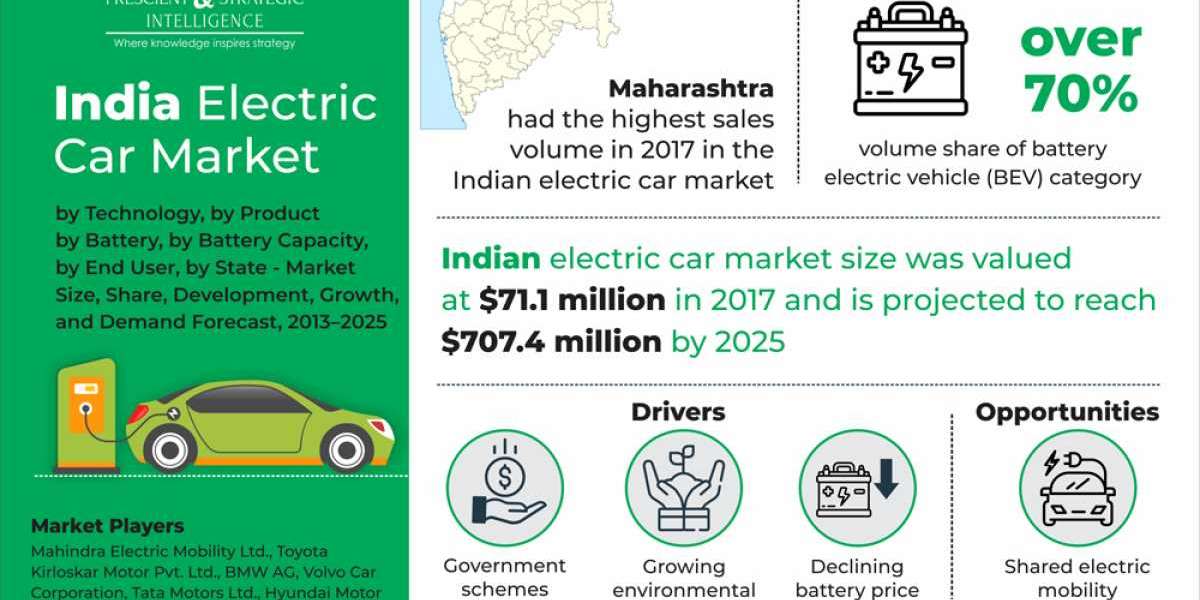The Indian electric car market is projected to reach $707.4 million by 2025, according to PS Intelligence.
The market is predominantly driven by the government schemes, growing environmental concerns, and falling battery prices. Several incentives, such as tax rebates, grants, and subsidies, have been launched by the central and state governments in order to increase electric car adoption in the country.
Request to Get the Sample Report@ https://www.psmarketresearch.com/market-analysis/india-electric-car-market/report-sample
Government schemes and subsidies are playing a major role in the growth of the Indian electric car market. The urban population has increased rapidly over the past decade, resulting in rise in pollution levels. To curb this issue, the Indian government is encouraging and supporting the adoption of electric cars through its several financial schemes and incentives. Several policies related to electric vehicle (EV) have been announced by the public authorities of India over the past few years indicating substantial action and ambition for the adoption of EVs in the country.
The Indian electric car market is highly consolidated and is dominated by Mahindra Electric Mobility Ltd. Currently, the company is the only BEV manufacturer in the country. It had ventured into the electric car industry much earlier than other Indian automotive players through the acquisition of Reva Electric Car Company in 2010. However, Tata Motors Ltd. is expected to gain a significant market share in the Indian electric car industry during the forecast period, as it has announced to launch two electric car models, Tigor Electric and Tiago Electric, by the end of 2019.
Some of the other Key players operating in the Indian electric car market are Hyundai Motor Company, Volvo Car Corporation, Toyota Kirloskar Motor Pvt. Ltd., and Honda Motor Co. Ltd.








